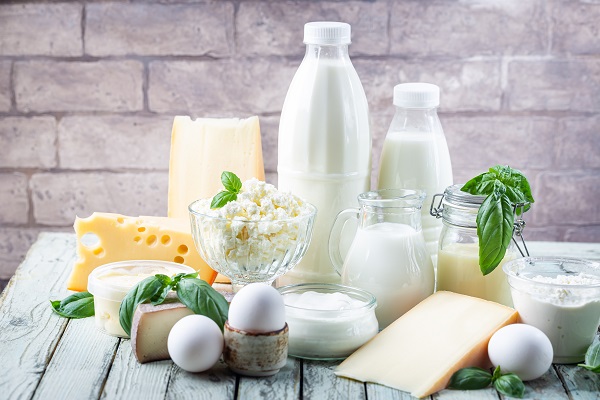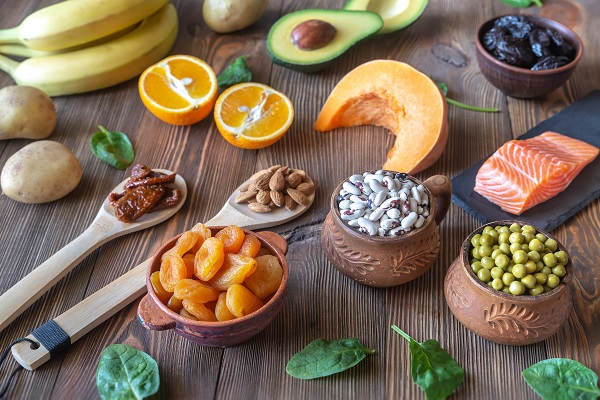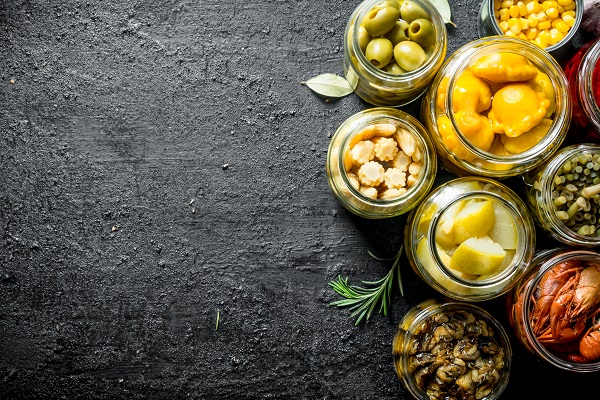The importance of kidney health is often underestimated until issues arise. Kidneys play a pivotal role in filtering waste products, excess substances, and toxins from the bloodstream, which are then excreted through urine. These vital organs also aid in maintaining a balance of electrolytes, regulating blood pressure, and producing hormones essential for red blood cell production and bone health. Unfortunately, certain foods, often consumed regularly, can impede kidney function and health. Recognizing these foods and understanding their impacts can significantly influence the prevention of kidney-related health issues and the promotion of overall well-being.
Contents
Canned Foods
Canned foods are a staple in many pantries due to their convenience and long shelf life. However, the excessive sodium content in these products poses a significant risk to kidney health. High sodium intake puts immense pressure on the kidneys to eliminate the excess salt, potentially leading to kidney damage over time. The impact of this increased workload can accelerate the deterioration of these essential organs, making the consumption of high-sodium canned foods a concern for individuals prioritizing kidney health.
Besides the sodium content, another concern is the preservatives and additives often found in canned foods. These chemical compounds, utilized to enhance flavor and extend shelf life, can be harmful to the kidneys. Consuming these substances regularly may lead to a gradual decrease in kidney function. Therefore, opting for fresh, organic, or frozen foods, or carefully reading labels to select low-sodium and preservative-free options, can make a significant difference in promoting kidney health.
Dark Sodas
Dark sodas are popular beverages enjoyed by many, yet they harbor ingredients that can be detrimental to kidney health. One major concern is the high sugar content, especially the presence of high fructose corn syrup. This type of sugar has been linked to obesity and diabetes, conditions that inherently increase the risk of kidney disease. Furthermore, high sugar intake can lead to the formation of kidney stones, a painful condition resulting from the crystallization of waste products in the kidneys.
Another ingredient that raises alarm is phosphoric acid, commonly found in dark-colored sodas. This acid can interfere with the body’s ability to absorb calcium, leading to issues like weakened bones and, relevant to this discussion, kidney stones. The consistent consumption of beverages containing phosphoric acid can contribute to the deterioration of kidney health over time. Thus, moderating the intake of dark sodas or opting for healthier beverage alternatives is a proactive step towards safeguarding the kidneys from potential damage.
Dairy Products
The inclusion of dairy products in the diet is common, but excessive consumption can pose risks to kidney health. One of the primary concerns is the buildup of calcium that can result from indulging in too many dairy products. When the body is inundated with calcium, the excess mineral can combine with other waste products to form kidney stones. Individuals who are prone to this painful condition might benefit from moderating their dairy intake to mitigate risks.
Additionally, dairy products are known for their high protein content. While protein is essential for muscle building and repair, among other functions, an overabundance can strain the kidneys. This is particularly concerning for individuals with preexisting kidney conditions, where filtering and eliminating excess waste and substances, including protein byproducts, can be challenging. Balancing protein intake while considering overall dietary and health needs can contribute to enhanced kidney wellness.
Processed Meats
Processed meats, though delicious and convenient, are often laden with sodium and additives that can escalate blood pressure and place undue strain on the kidneys. Elevated blood pressure is a known risk factor for kidney disease, as it can damage the blood vessels in and around the kidneys, impairing their ability to effectively filter waste from the blood. Regularly consuming processed meats increases exposure to these risks, underscoring the need for moderation and dietary diversity.
Beyond sodium, the protein content in processed meats can also be a source of concern. The kidneys are instrumental in filtering byproducts of protein metabolism, and too much protein can intensify the workload of these organs. Over time, this increased strain can potentially lead to a reduction in kidney function. Choosing plant-based proteins or lean, unprocessed meats can be a healthier alternative to mitigate these risks.
High-Potassium Foods
Potassium is a vital mineral that supports various bodily functions, including nerve and muscle cell functioning. However, for individuals with compromised kidney health, managing potassium levels is crucial. Damaged kidneys can’t eliminate excess potassium efficiently, leading to hyperkalemia, a condition characterized by higher than normal potassium levels in the blood. The symptoms of hyperkalemia range from weakness and fatigue to dangerous heart rhythms and cardiac arrest.
It is essential to be aware of foods that are particularly rich in potassium. These include bananas, oranges, potatoes, spinach, and tomatoes. For those with kidney concerns, monitoring and moderating the intake of such foods can be integral to maintaining balanced potassium levels. Consulting with a healthcare professional for personalized dietary advice ensures that nutrient needs are met without compromising kidney health.
Alcohol
Alcohol’s diuretic effect leads to increased urination and potential dehydration. As the body loses more fluid, the kidneys must work harder to filter and eliminate waste products from the blood, and this can damage kidney cells. Dehydration also increases the risk of kidney stones due to the higher concentration of minerals and electrolytes in the urine, resulting in the crystallization and formation of stones.
Furthermore, consistent alcohol consumption has long-term impacts on the kidneys. Alcohol can lead to high blood pressure, a leading cause of kidney disease. It impairs the kidneys’ ability to filter harmful substances from the blood, leading to an accumulation of toxins. The liver, too, can suffer damage, and a compromised liver affects kidney function and overall health.
Pickled Foods
Pickled foods, though enjoyed by many for their distinct taste, often contain high levels of sodium. Excessive sodium intake can increase blood pressure, placing extra strain on the kidneys and potentially leading to kidney damage over time. Chronic kidney disease is often linked to hypertension, and dietary choices that elevate blood pressure levels can exacerbate the issue.
Additionally, the acidic nature of vinegar used in the pickling process can affect kidney health. Acids can lead to the formation of kidney stones by increasing the acidity of urine. People prone to kidney stones or those aiming to prioritize kidney health might consider moderating the consumption of pickled foods while balancing their diet with alkaline foods to neutralize acidity.
The Bottom Line
Balancing the intake of potentially harmful foods is paramount to preserving kidney health. Awareness of the adverse effects of certain foods, such as canned items, dark sodas, and processed meats, empowers individuals to make informed dietary choices. Likewise, understanding the impact of high-potassium foods, alcohol, and pickled items plays a crucial role in preventative health. Adaptation and moderation, alongside a well-rounded diet, become instrumental in maintaining optimal kidney function, supporting overall health, and reducing the risk of chronic kidney diseases and related health complications.









